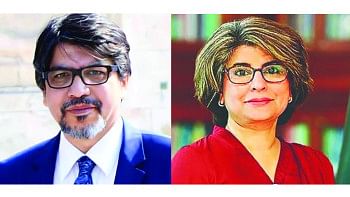Mixed reactions over industrial police
The introduction of industrial police has evoked mixed reaction among businesspeople.
Pointing to the job of such police, a specialised unit of the law enforcement agency that began its journey Sunday, different trade body leaders and owners of industrial units suggested higher training for industrial police, as they will be doing counseling, rather than normal policing to maintain law and order.
The country's four industrial zones, especially the apparel industrial areas will come under the purview of the new police force.
In its reaction on Monday, the apex trade body welcomed industrial police.
Describing the launch of the new force as fulfillment of a long-time demand from businessmen, AK Azad, president of the Federation of Bangladesh Chambers of Commerce and Industry, said, "Sometimes it was difficult to control labour unrests by the normal police, because they often arrive any spot of occurrence lately.”
Anis Ud Dowla, president of Metropolitan Chamber of Commerce and Industry, said it is not possible to control any lawlessness employing police force. "We need to solve any unrest by labour leaders through mutual understandings."
Citing examples of other countries, the metropolitan chamber chief said generally the industrial police members intervene at an extreme stage of any chaotic situation. Anis Ud Dowla said identifying the outsiders who provoke any unrest in the industrial sector is also possible by the normal policing system, it does not need any specialised police force.
"Such police force would not be effective,” he categorically said.
Mushrefa Mishu, president of Garment Sramik Oikya Forum, a workers platform, said industrial police is not a solution to unrest.
Workers demonstrate when factory owners do not meet their demands, Mishu said, adding that introduction of the industrial police will only control legal movement of the workers.
A tripartite understanding among workers, owners and the government can solve any problem, not the industrial police, she said.
David Hasanat, chairman and managing director of Viyellatex Group, said there is no relationship between unrest and police.
"We must find out the root causes of unrest in the garment sector," he said. The newly formed industrial police must need a lot of training and resources, Hasanat said.
Abdus Salam Murshedy, president of Bangladesh Garment Manufacturers and Exporters Association, hailed the introduction of such specialised police force and described it as a time-befitting one to control labour unrest.
"It was our long demand. Sometimes we face the unrest also for 'jhoot' (waste clothes) trading. The industrial police will help also in controlling 'jhoot' business," he said.
Anwar-ul-Alam Chowdhury Parvez, managing director of Evince Group and former BGMEA president, said the industrial police will be helpful to protect the sector, but they need special credit.
"The job of the industrial police would be counseling, rather than normal policing. They must give advance information and they must grow trust through their activities," he said.
"They will identify problems and try to improve the working environment in the industrial sector," Parvez said.
Salim Osman, president of Bangladesh Knitwear Manufacturers and Exporters Association, said many incidents of labour unrest could not be controlled because of the dearth of police.
"So, I think industrial police would be helpful for controlling any labour unrest," he said.
Initially, 1,580 personnel deputed from the police department will make up the new force.
They will later be joined by 1,410 more cops to patrol Dhaka, Gazipur, Narayanganj and Chittagong industrial hubs.
[email protected]

 For all latest news, follow The Daily Star's Google News channel.
For all latest news, follow The Daily Star's Google News channel. 



Comments